Ah yes, the controversial Grand Theft Auto. Back in the news again, but for once it's not for scorn! Always controversial, the series is loved by gamers and critics — though constantly protested by community safety advocates.
Through all the white noise, one girl has turned the debate on its head: 11-year-old Audrey Plique, whose mother claimed that a GTA technique saved the entire family from a blast after a car crash!
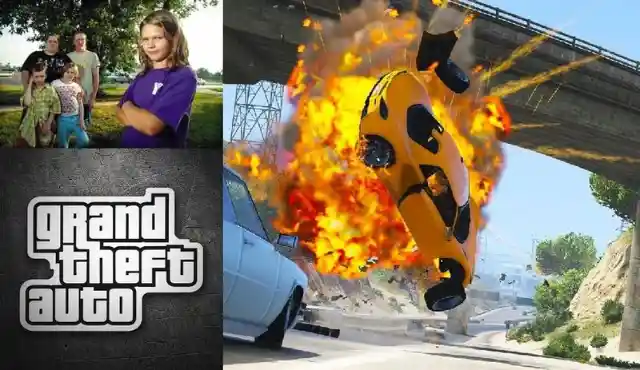
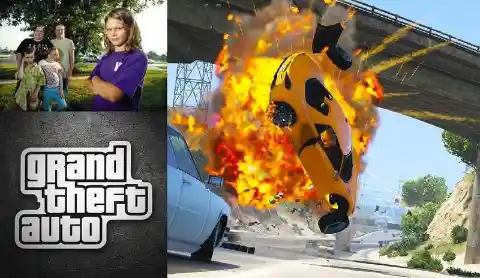
Is this really true though, or is it propaganda from Grand Theft fans who are sick of seeing their beloved carjacking simulation blasted by Congress?
With more than 280 million games sold, maybe it's possible at least one person learned something relevant for life!
GTA 101
Everyone heard about the negative media coverage of the world's most popular video game. But, if you lived under a rock for the past decade, here's a quick recap: Grand Theft Auto games are set in fictional cities, as well as a few real ones more recently. Players have a special mission: To rise through the criminal ranks!


Activities include driving around to engage in shootings, beatings, and carjacking. Sometimes role-playing and racing enter the mix, and it's a pretty high adrenaline afternoon.
Fans of this series enjoy a big bonus with celebrity voice overs for these mischievous characters. Guest stars have included Samuel L. Jackson, Ray Liotta, Debbie Harry, Axl Rose, Dennis Hopper, James Woods, and Peter Fonda.
Sounds like a riot! Why have so many people out there slammed GTA over the years, though?
Vixens and Violence
Despite being the fourth-highest selling game franchise in history, there have been plenty of chronic haters out there.
GTA ranks similarly to all the Mario and Pokémon options on the market, and The Telegraph declared it to be one of the UK's most successful exports. Still, critics see all that car thievery as a very different kind of entertainment.


Some people point out that the violent theme is further filled with women in skimpy outfits, misogyny, and racist language — though fans seem to see it differently!
In the case of Audrey Plique, it appears she absorbed a totally unrelated message. What happened, and what did she think she learned from this popular video game?
Disaster Strikes
While many stories out there point at Grand Theft Auto as an inspiration for public disorder and petty crime, this one breaks the mold.
One night around 9 pm, a family of five was cruising to a small town in Illinois to visit relatives. Nothing out of the ordinary here, except for one thing: Suddenly, the car swerved off the road!
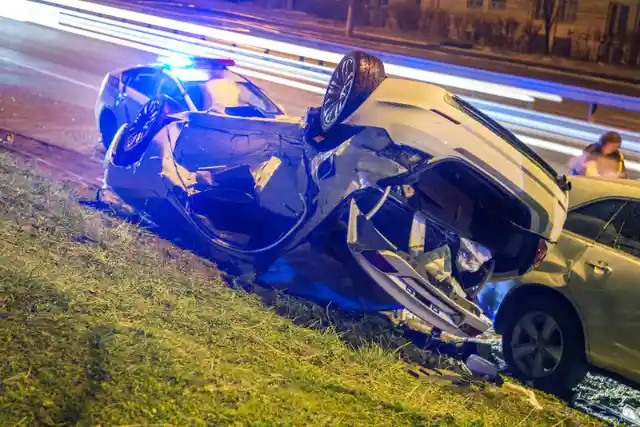
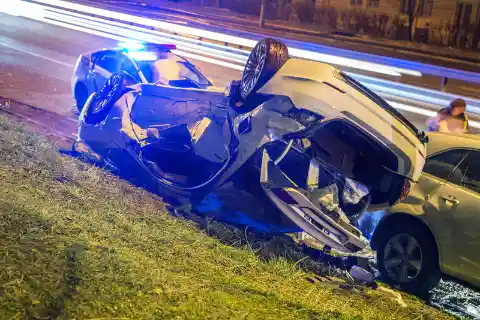
Slamming a guardrail resulted in flipping four times, caving in the car roof, and smashing the rear window. What a nightmare! Was everyone still alive?
What a Drag
Miraculously, they were still alive — so far. Audrey Plique seemed to be the most mobile at this point, and she quickly climbed out of the back window with her small body. Looking at the carnage, she saw a terrifying scene!
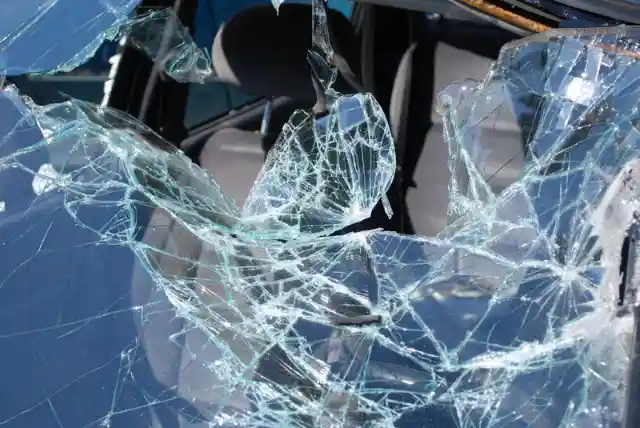
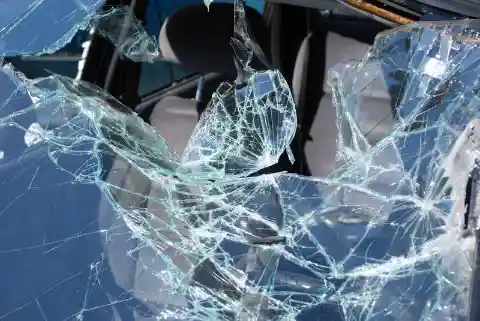
Mom was hanging upside down and dad was pinned to the steering wheel!
Audrey leaped into action, dragging her parents and two siblings out of the car! But why did this child decide on that quick plan?
Grand Theft Education
According to Audrey's mom, the girl had witnessed a lot of car explosion while playing GTA at home: "She just knew, from playing 'Grand Theft Auto.' She saw on there that when a car rolls over, it can blow up. She knew that could happen to us."
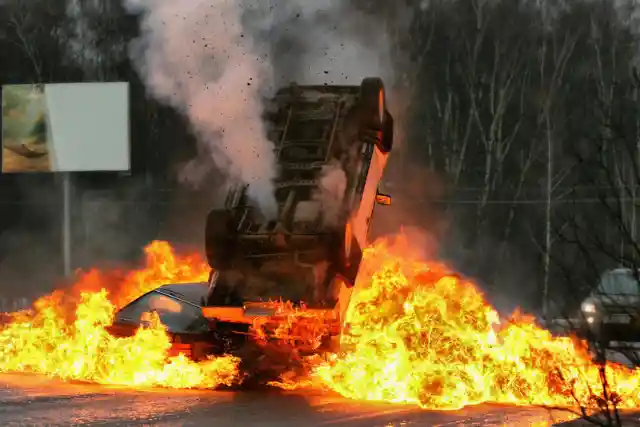

A shocking story of video game education put into action! Or is it? The headline sparked a lot of debate among fans, critics, and even firemen about the claims being made by Audrey and her family. Is there any truth to the mother's reasoning?
Can't Fight Physics
One reader disputed the concept of flipping cars as a ticking time bomb: "It's a nice reply to all the fuss about games leading to robbery and other crimes...Though coincidentally one aspect of the game, which is not completely true, lead to a good thing, it could have lead to tons of other bad things...And the girl might just have the misconception that all flipping cars explode, which isn't true...If she is so gullible to think that physics in games are a close representation to reality, she'd better NOT be playing games at all..."
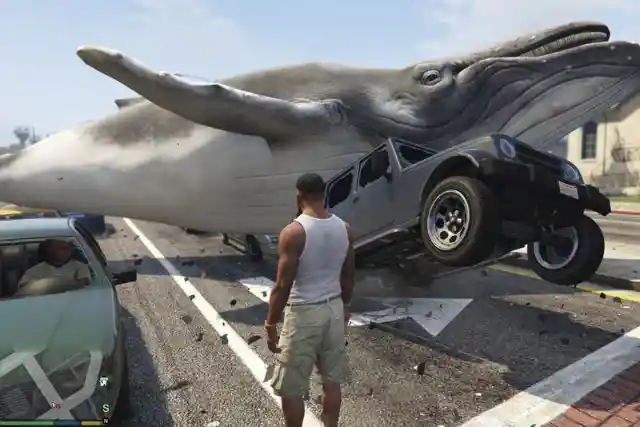

Wait, maybe it's not even true that cars explode when slammed multiple times! Other readers weighed in on the story, but did any support Audrey?
Crediting Courage
Indeed, many people out there admired the girl. One reader offered support for her bravery:
"Really funny how everyone here is bashing the girl about what she did, she tried to help her family instead of just start to cry and scream uncontrollably like many of the people bashing her would do.
It doesn't matter if the car won´t blow up or if she is learning things in GTA, she did a really outstanding thing for a kid her age".
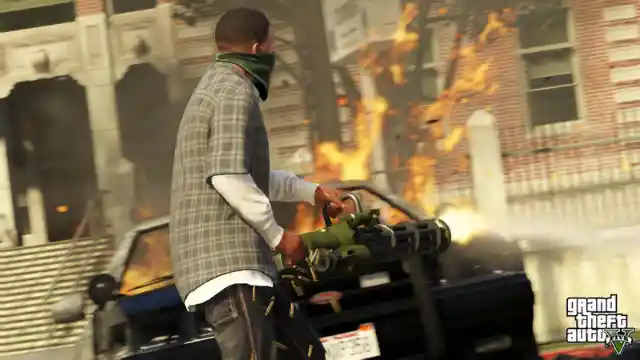
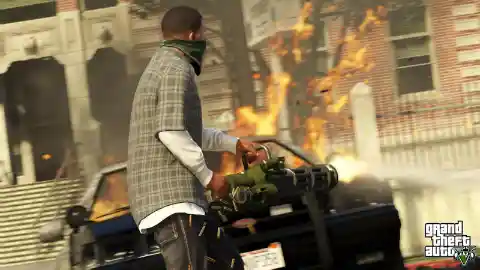
Others did not feel she did anything out of the ordinary, however. What was their perspective on Audrey's actions?
Just Common Sense
One commenter felt that the girl did the obvious and normal thing, explaining:
"I think any 11-year-old would do the same damn thing, even if they never touched a GTA game. It's a common human instinct to try and get your family out of a crashed vehicle. She wasn't going to 'cry uncontrollably'...At 11 she should be perfectly capable of knowing just what to do."
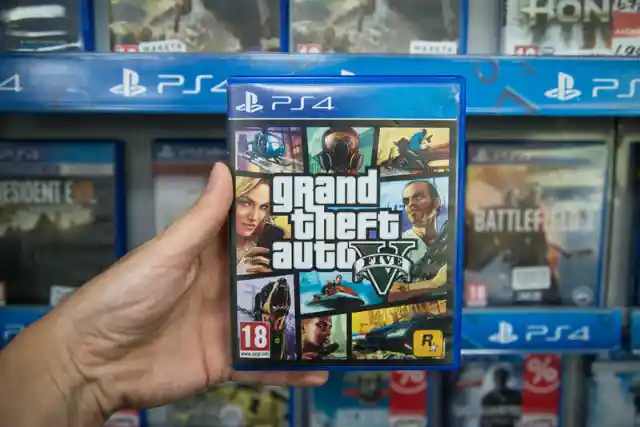
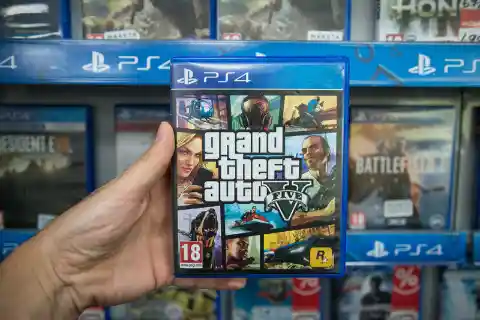
Still, there was one more line of discussion in response to this story that was even more important. Was it actually medically safe at all to do what Audrey did? Hint: maybe not!
Burn Baby Burn
It's always great to hear from someone with expertise in the field. One firefighter popped in the chat to explain:
"Newsflash, people. Cars. Don't. Blow. Up. I trained as a firefighter, I should know. The worst that can happen is, if the gas tank is punctured, gas will leak and might catch fire. Not blow up. Catch fire. It's annoying, it's hot, it burns. But it doesn't explode.
Gasoline is not, I repeat, NOT an explosive...In very rare occurrences, gasoline has been known to leak and soak up the back seat, which in turn becomes flammable. Not "suddenly-bursts-on-fire!!!". Just flammable.
Don't smoke while you're car is upside down and your backseat is soaked in gas and you risk very, very little."
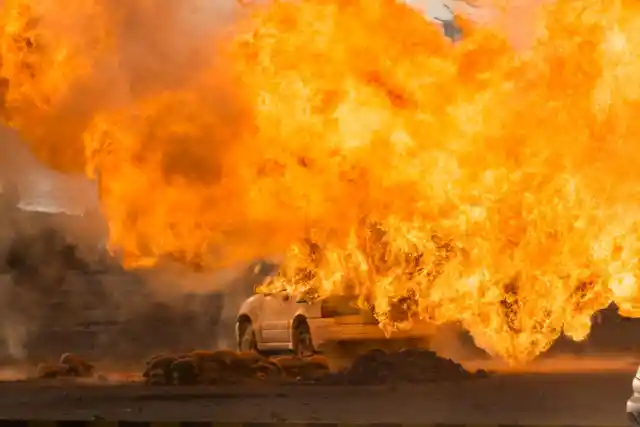

Suddenly, it sounded like the graphics in GTA showing constant explosions might not be very realistic, even if they look that way! What's worse, Audrey's actions risked major medical mayhem. But why, exactly?
Medical Mishap
The fireman continued: "By dragging her family out of the car, this kid risked aggravating dangerous spinal injuries. She could've paralyzed her mother or straight up killed her father! And the media is glorifying this act of pure stupidity?"


Yikes, who thought about that? As it turns out, moving injured people is never recommended!
Without the imminent threat of explosion, it sounds like there would be no reason not to wait for trained EMT workers to assess the carnage. No one can blame Audrey for loving her family so much, of course.
Even with this murky story of good PR for Grand Theft Auto, did public opinion change at all about the controversy of this game? Why, no — a new chapter of blame commenced! What was the charge this time?
Bad Reputation
Mass public shootings have been all over the news since Columbine, frankly. As the public searches for answers, GTA has often gone down in collateral damage for right or for wrong!
For example, President Donald Trump made a speech after the shootings in Texas and Ohio.
He tied violent video games to the attacks: “We must stop the glorification of violence in our society. This includes the gruesome and grisly video games that are now commonplace."
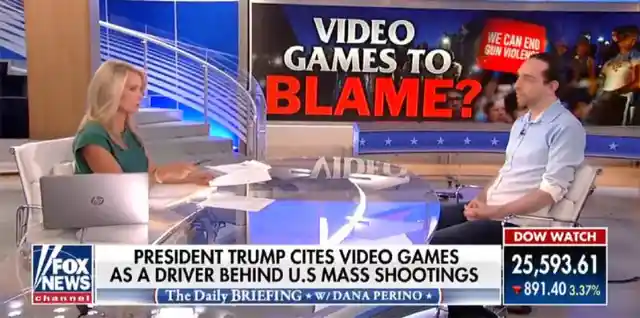
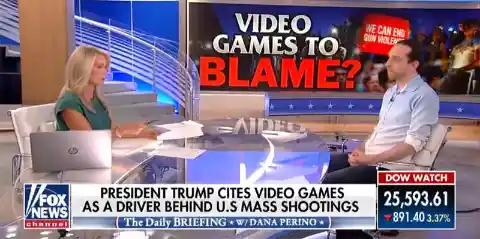
House Minority Leader Kevin McCarthy went on TV to further support this agenda, and community advocates all over the country agreed. Is there really any link between violent entertainment and real-life shootings? Time for a look at some case studies!
Dark and Deranged
Every crime is an individual story, but sometimes there are patterns to study. Critics of GTA and other shooting games point to one trend to explain their opposition: The personal histories of the most well-known mass shooters in recent history!
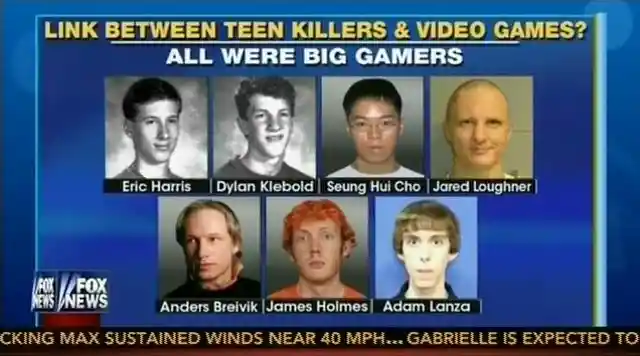
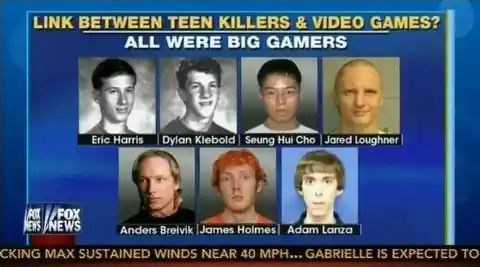
It appears that basically all of the infamous murder we've come to know were indeed big gamers of the violent variety. It is also true that they often release very detailed manifestos explaining their actions.
For example, the El Paso shooter put out a 2,300-word document online claiming the attack was “a response to the Hispanic invasion of Texas.”
Should the public take him at his word? Other people try to make more scientific connections between brain chemistry and violence. What do psychologists say at the moment?
Brain Teaser
People have been nervous about the neurological effects of video games from the very beginning. There has simply been an assumption that something negative is going on in the human brain as it rewires to virtual reality.
What do researchers have to say about the effects of engaging in fake violence?
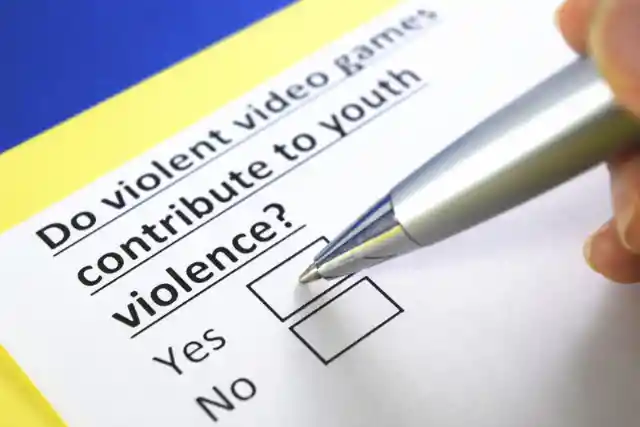
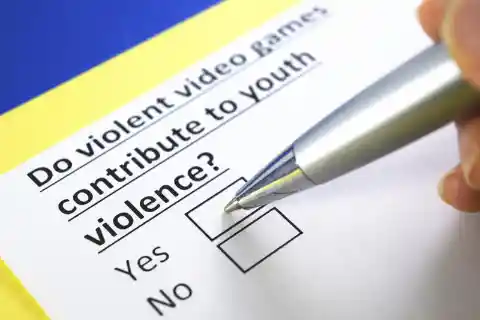
While psychologists have been looking at the issue for decades, there is still debate about how much any existing effects translate to the real world.
Some say that these games do increase aggression, but there is an argument even in this group whether or not that goes beyond slamming the controller down harder than usual. Still, why are people disputing this?
Psychology Strikes Back
President Trump continued: “It is too easy today for troubled youth to surround themselves with a culture that celebrates violence.”
Perhaps there is already an existing culture that celebrates brutality? Politicians in a position to regulate the industry have tried to do so for many years.
But according to the American Psychological Association, “Scant evidence has emerged that makes any causal or correlational connection between playing violent video games and actually committing violent activities.”
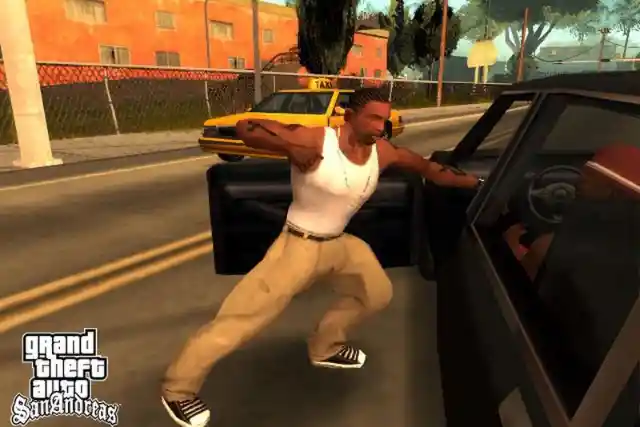
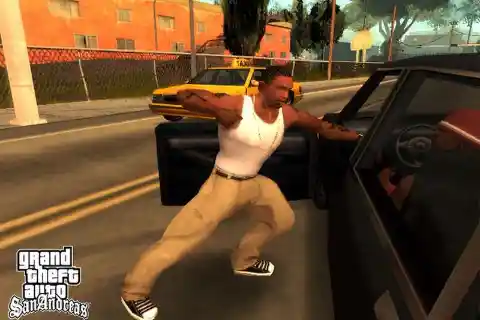
Another expert in the field explained the link as bunk: “The data on bananas causing suicide is about as conclusive...Literally. The numbers work out about the same.”
The Supreme Court has officially rejected the link for now, striking down a California law that tried to ban the open sales of violent games for children. What was their reasoning?
No Kangaroo Court
The late Justice Antonin Scalia wrote in the majority opinion: “These studies have been rejected by every court to consider them, and with good reason: They do not prove that violent video games cause minors to act aggressively...
They show at best some correlation between exposure to violent entertainment and minuscule real-world effects, such as children’s feeling more aggressive or making louder noises in the few minutes after playing a violent game than after playing a nonviolent game.”
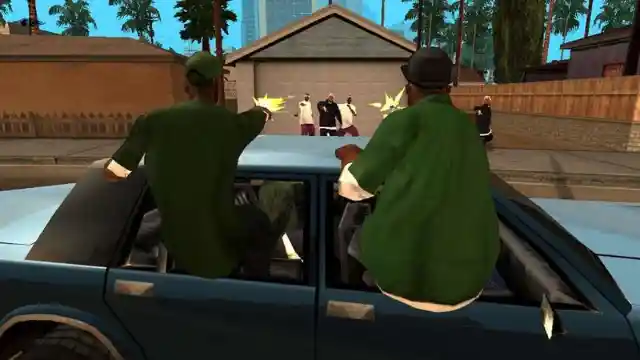
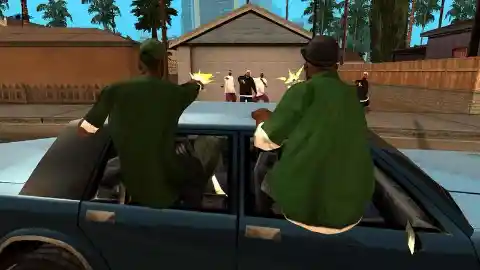
Still, hashtags began trending online after the President brought the issue up again for public debate. #VideogamesAreNotToBlame were all over Twitter! How have social media companies decided to respond to this controversy on their platforms?
Google Gears Up
YouTube announced it would no longer restrict violent video game content by age, actually.
Parent company Google explained that “future gaming uploads that include scripted or simulated violence may be approved instead of being age-restricted...there will be fewer restrictions for violence in gaming."
The platform vowed to protect viewers from real videos of violence, however.
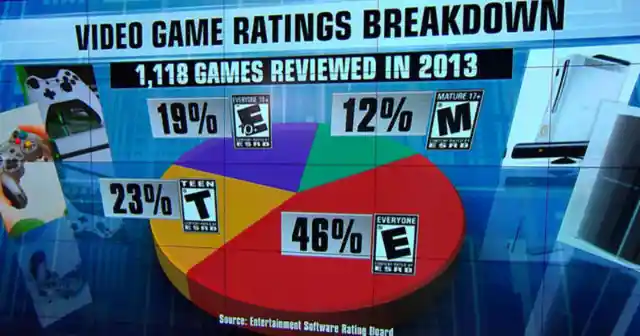
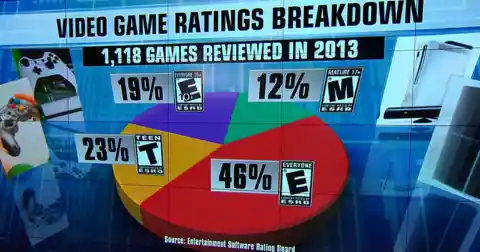
According to a rep: “We know there’s a difference between real-world violence and scripted or simulated violence — such as what you see in movies, TV shows, or video games — so we want to make sure we’re enforcing our violent or graphic content policies consistently."
It seems like the debate rages on about the negativity of virtual violence, but what about the other side of the coin? Is there anything objectively positive about the hobby, at the end of the day?
Total Game Changer
Surprise, surprise — a lot of other research is in, too. Experts say that playing video games improves coordination, problem-solving skills, attention and concentration, brain speed, and more!
Some studies show that the activity can enhance memory, too.
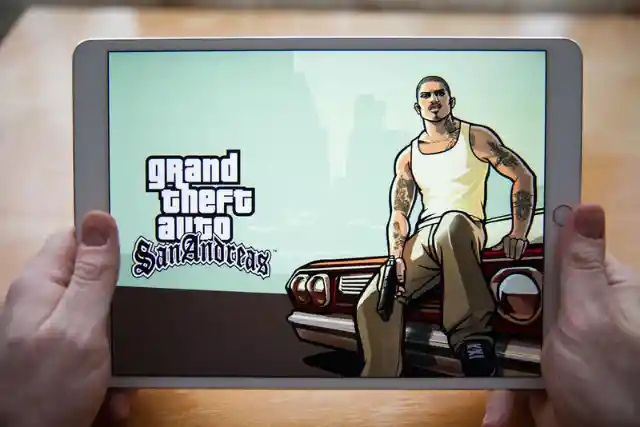
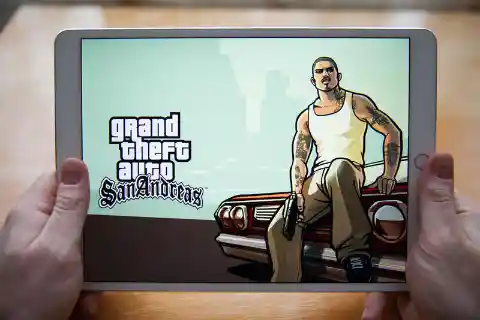
Other researchers claim that playing video games can improve social skills, but that one might be in dispute even among fans.
Everyone knows a gamer or two that never makes it out of the house to talk to real people! At the end of the day, research will continue regarding the effects of virtual violence on human neurology.
It's possible something new could be discovered to change the whole debate once again! One thing is for sure, though: The case of Audrey Plique is a good example of why learning how reality works from the rules of a video game might not always translate into real-world fixes.
Consult medical resources for first aid, always — not Grand Theft Auto!